14 de marzo 2024

Children of Exile: The Births “Sowing Hope” in the Camp of Nicaraguan Farmers

PUBLICIDAD 1M
PUBLICIDAD 4D
PUBLICIDAD 5D
This former psychology student found her path in the art of writing songs that heal and empower the soul
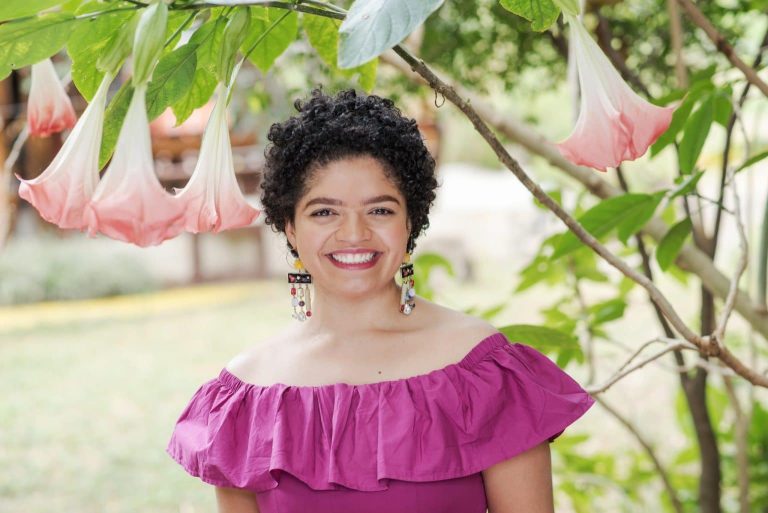
The little girl who spent hours imitating Shakira, Thalia and other Latin pop divas of the 2000’s is today a singer-songwriter with her own voice, who’s been conquering audiences within and outside her native Nicaragua. Ceshia Ubau Molina had the good fortune to have parents who took her innocent games seriously and invested their energy in developing her artistic talents. That’s how this 26-year-old singer-songwriter started out. Today, she describes her music as a “powerful tool for healing and empowerment.”
In this interview with Confidencial’s section “Nicas Migrantes,” which features the accomplishments and difficulties of Nicaraguans living outside the country, Ceshia Ubau shares details of her musical trajectory and her experience as an immigrant in Costa Rica, where her career took off. From her beginnings in Nicaragua through her growth as a performing artist, she speaks of the challenges and opportunities she’s found in Costa Rica, the country where she now lives.
“I loved playing at being a singer and giving private concerts for my stuffed animals,” Ceshia recalls. “Once, I decided to take my performance to the next level: I organized my room as if it were a real stage, arranged little tables and children’s chairs to simulate seats for the audience, even improvised a small stage to perform on.” Noting her musical inclinations, her parents enrolled the little girl in piano lessons, which marked the beginning of her musical training.
As she progressed in her piano studies, her passion for music grew. She expanded into different musical genres, immersing herself in classical and contemporary music, exploring the nuances of jazz, and intertwining the folkloric roots of Nicaragua and Central America with contemporary sounds. “It was during my years studying jazz that I began experimenting with composition,” she comments.

At the age of 17, she began to write her first songs in diaries and notebooks. They were inspired by the works of Cuban singer-songwriter Silvio Rodríguez and by Nicaraguans such as Salvador and Katia Cardenal, and Elsa Basil. She was also influenced by Colombian Martha Gómez, Mexican singer Natalia Lafourcade, and others.
Ceshia Ubau is a psychologist with a Master’s in the treatment of sexual abuse victims. In addition to being a singer-songwriter, she offers psycho-social interventions and facilitates processes of development and wellness in communities in the northern zone of Costa Rica.
She believes the combination of psychology and music represents a powerful tool for healing and empowerment. “I discovered in psychology a theoretical foundation for what I wanted to accomplish with my songs – connecting with the most profound emotions of being,” she reflects. “I discovered my aim as a songwriter, which helped me to define my life’s project.”
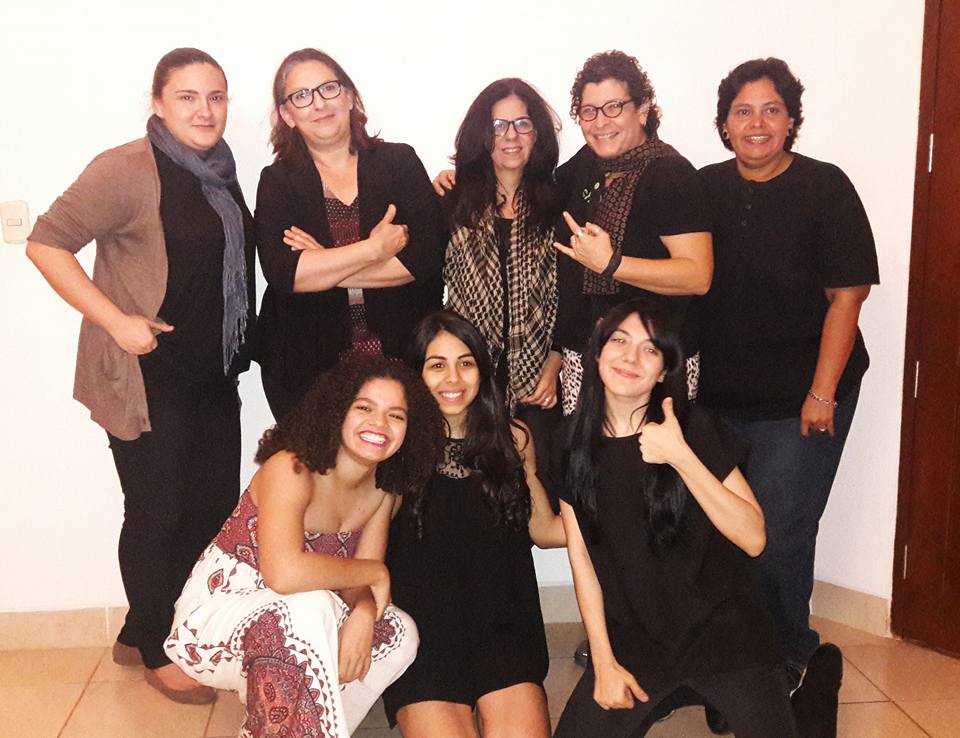
Ceshia notes that music has multiple therapeutic tools. As a songwriter, she uses the power of the word fused with sound.
“Healing is the word that sums up my entire concept and what I seek with the music,” she states. “It’s much easier for us to be able to identify our emotions through music and be able to name them. When we can give names to these feelings, we can begin to heal our personal story and transform things.”
Her mission goes beyond mere entertainment – she seeks to inspire and empower her audience, reminding them that we all have an intrinsic force inside us which we can access through music. Her songs present her perspective on social and personal realities. They speak of love, self-esteem, the joy of living, and migration.
On May 28, 2018, Ceshia arrived in Costa Rica with the intention of remaining there for a short while until the sociopolitical situation in Nicaragua improved. Although she hadn’t planned to stay in Costa Rica permanently, she ultimately decided to do so, in order to start a new life that would provide her with some security.
In the neighboring country, Ceshia Ubau has found inspiration and support in the local artistic community, as well as other diasporas. Her perspective on life and music has broadened through these interactions, and she has learned valuable lessons about sharing and belonging to a community of artists. “When I arrived, many Costa Rican performing artists gave me their support, opening doors, recommending me, and offering me opportunities to play with them. This was possible thanks to a support network that was built by word of mouth,” she notes gratefully.
As a female immigrant in Costa Rica, Ceshia says she’s faced xenophobia and sexism in her daily life. She explains that there are numerous myths and stereotypes regarding Nicaraguan women, fueled by sexism and social stereotypes of what a Nicaraguan woman should be like. “I remember when a boy asked me out and told me that he wanted to be with me because he thought that Nicaraguan women were very hot. I’ve also received comments from people who told me that I didn’t seem like a Nicaraguan – some even went so far as to say I was too pretty to be one,” she recalls.
In addition, she points out the sexism that’s present in the music industry of Central America and Costa Rica. “In the music industry, I’m often expected to accept dates or settle for being seen only as a muse, rather than recognizing my true role as a creator. This stereotype of women in music reduces me to simply being ‘the girl who dances on stage’, instead of valuing my talent and contribution as an artist.”
However, she’s also encountered kindness, openness and respect. Ceshia is thankful that she’s been able to surround herself with aware and empathic people who’ve helped her to overcome these obstacles. This network of performing artists is the place where she’s found a safe space to express herself and pursue her dreams.
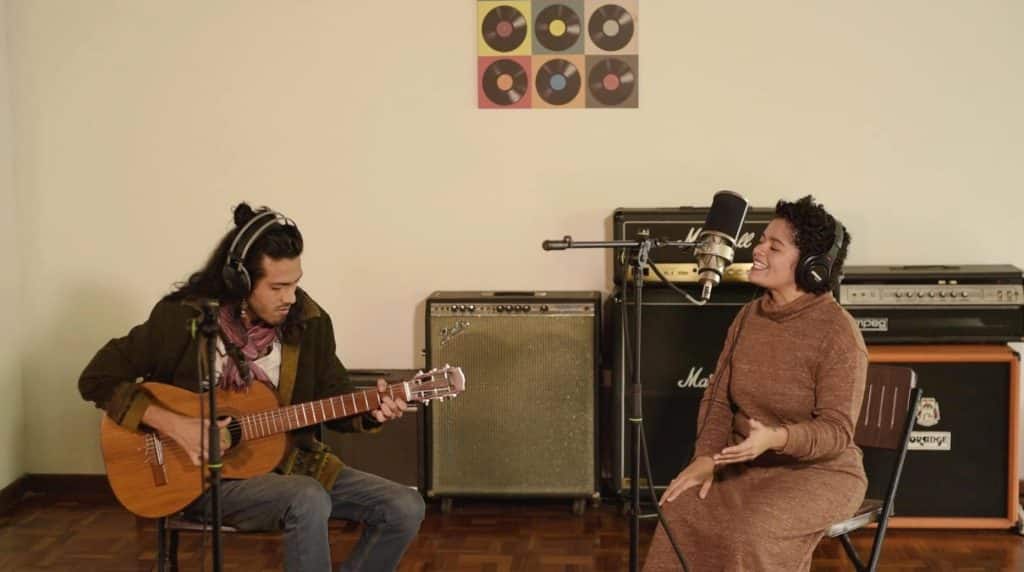
She was able to put together a band in 2022, made up of Eddie Monge, a Nicaraguan from Jinotepe, Carazo, who’s lived in Costa Rica for a long time; Fiorella Hidalgo, a Costa Rican percussionist, and Javier Alvarado on bass. “They’re a talented and diverse group that reflects the cultural and musical richness of the region,” she assures.
Ceshia Ubau’s talents have been recognized with awards and distinctions that highlight her role in the Central American musical scene.
In 2021, she won third place in a world songwriting competition with her song Mayahuaba, which touches on the realities of those migrating from the different Central American countries. The song was created in collaboration with Said Palacios, a Garifuna songwriter from Guatemala, and Daris Hernandez, another Nicaraguan songwriter.
An award from the Ibermusicas program for the promotion of Ibero-American music allowed her to produce her second album, Luz [“Light”], which later won Best Produced Album and Best Producer from the Costa Rican Association of Authors and Composers (ACAM). In addition, the song Para mi [“For me”] was recognized at the same ceremony in the category of New Songs.
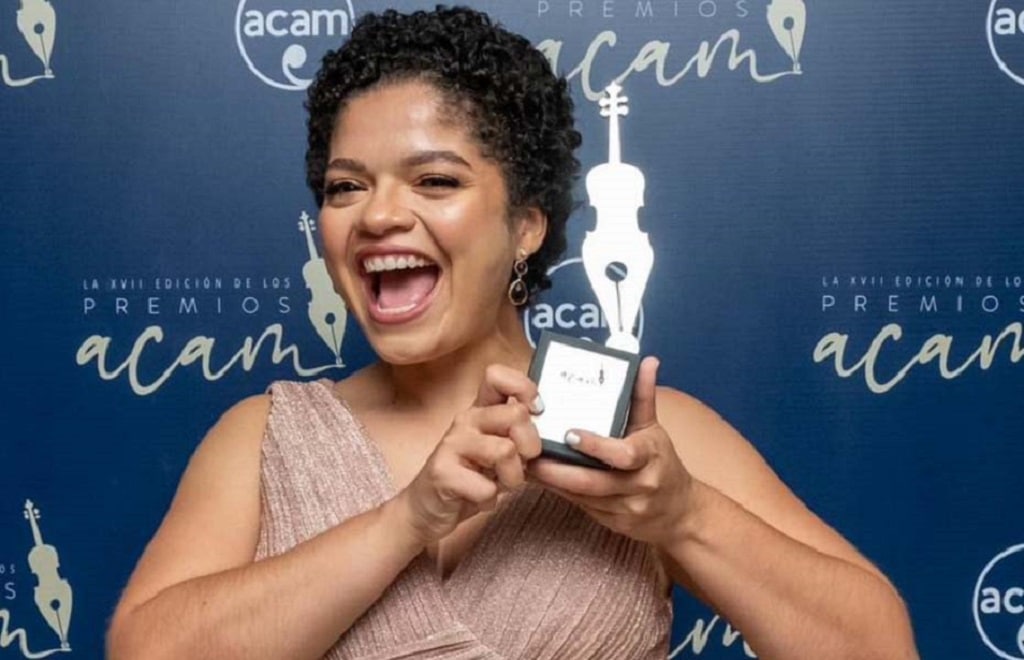
Ceshia’s song Declaracion also won the competition “Artism: hydration of art and activism,” sponsored by the Central American Women’s Fund. This served as a push to fully launch the song in 2020.
One of the highlights of Ceshia’s career occurred when her album Luz was chosen as a preselection for the Latin Grammys in the category of Best Album by a Singer-Songwriter, and Album of the Year. This recognition at an international level marked a milestone in her career and gave her the opportunity to become a voting member of the Latin Grammys Academy.
Although it wasn’t in itself an award, being named as a preselection meant a lot to Ceshia. “The fact that Luz was preselected for the Latin Grammy nominations of 2022 was in itself a recognition, after so much effort and focused work. It was very exciting for me to be able to get closer to the Academy, thanks to this achievement.”
Up until now, Ceshia has put out two albums: Con los ojos del alma [“With the eyes of the soul”] in 2017,and Luz in 2022.
To the artist, however, the most important recognition she receives is from her public. “A girl wrote me after a concert, saying I’m the best singer in the world,” Ceshia remarks with a smile. ”For me, that’s the most beautiful and meaningful recognition possible.”
In February 2024, Ceshia Ubau premiered a new piece: Melodia sagrada [“Sacred melody”]. This was a transcendent song for her, as it reflects her experiences as a woman migrant and her connection with her family, also marked by migration. Her paternal grandmother is Costa Rican and her grandfather Nicaraguan. The latter emigrated to Costa Rica from the Nicaraguan Island of Ometepe at the beginning of the twentieth century and settled in the Upala canton of Costa Rica, in the Alajuela province near the Nicaraguan border. Her grandparents had 12 children who grew up between both countries, like many binational families in the border area.
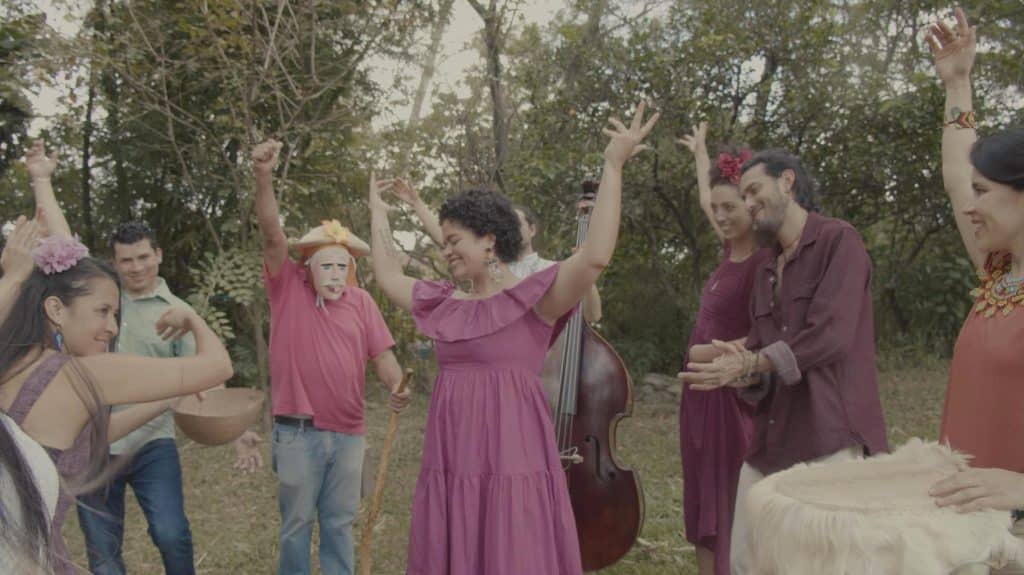
The theme of migration is essential to Ceshia’s history and identity. She’s experienced the challenges, opportunities and occurrences inherent to the migratory process. This inheritance has left a trans-generational mark on her life and on her identity, inspiring her music and her art.
To Ceshia, this particular song, Melodia Sagrada, is a call for unity and acceptance of diversity. It promotes inclusion and the construction of community. She created it in collaboration with the Tocar el Tambor women’s percussion group, led by Anyul Arevalo and with the help of Javier Alvarado, who incorporated the traditional Colombian bullerengue genre, part of the folklore of that country’s Caribbean coast. These elements enriched the song’s composition.
As part of the campaign around this musical number, Ceshia Ubau and her team carried out an initiative entitled Anhelos Migrantes [Migrant Yearnings], which consisted of interviewing anonymous migrants on the streets of San Jose, and asking them to write down their dreams. The Costa Ricans were asked to express their wishes for the migrants. The dreams they shared centered around reuniting with family, making friends and finding a sense of belonging in the country that had taken them in.
On March 20, 2024, Ceshia is planning to launch her single Marzo 2020, which will be recorded in collaboration with the Costa Rican non-profit label “We Could Be Music.” The song tells of a long-distance love that ends due to the closed borders during the pandemic, but that finishes with an emotive reencounter.
In addition, she’s planning to hold concerts all over Central America. “I’m focusing on expanding and regionalizing my project,” she affirms, “because I believe firmly in the importance of feeling ourselves part of the Central American identity.”
This article was published in Spanish in Confidencial and translated by Havana Times. To get the most relevant news from our English coverage delivered straight to your inbox, subscribe to The Dispatch.
PUBLICIDAD 3M
Periodista nicaragüense exiliada en Costa Rica. Se ha especializado en la cobertura de temas de migración, género y salud sexual y reproductiva. También ha trabajado en Marketing y Ventas y ha sido Ejecutiva de Cuentas.
PUBLICIDAD 3D